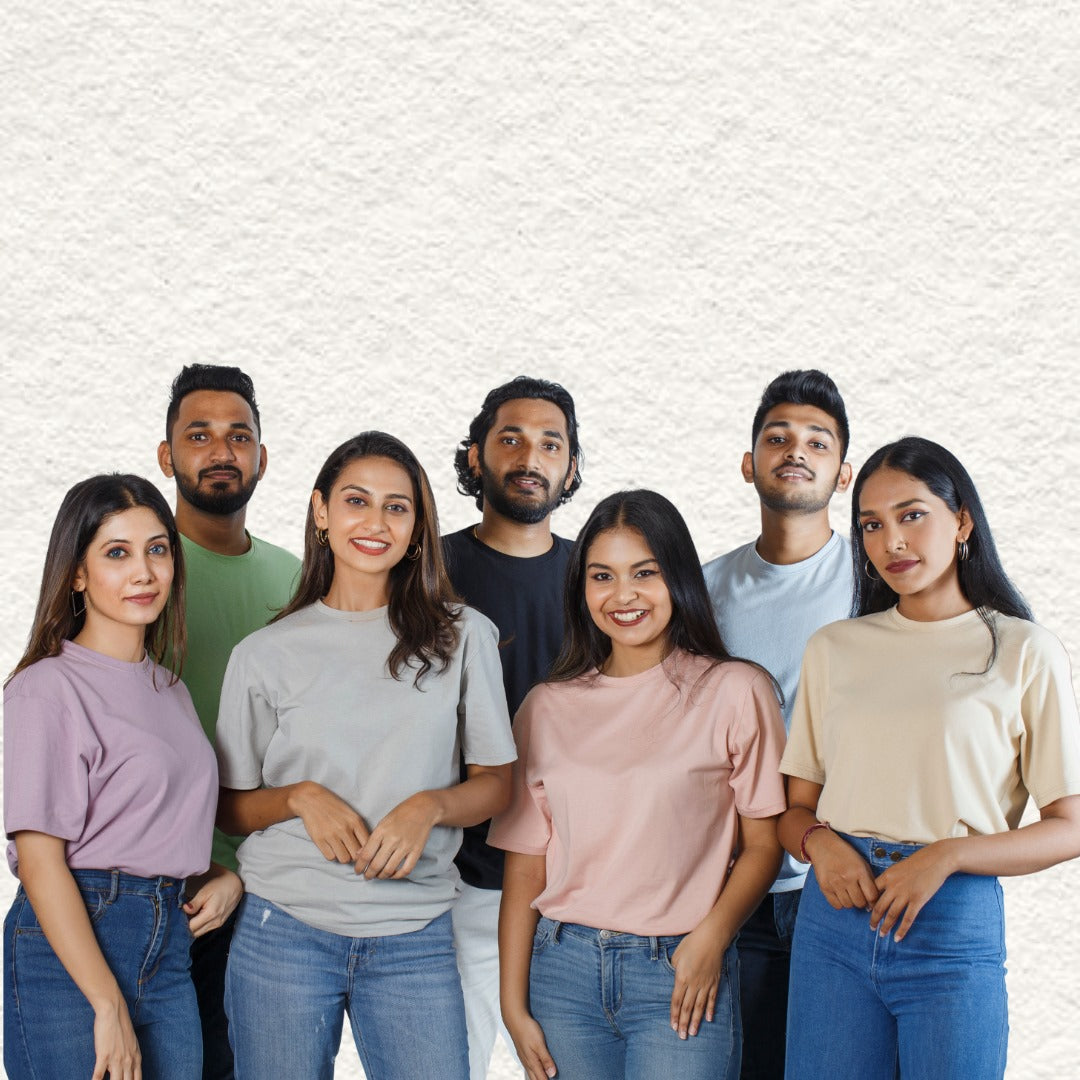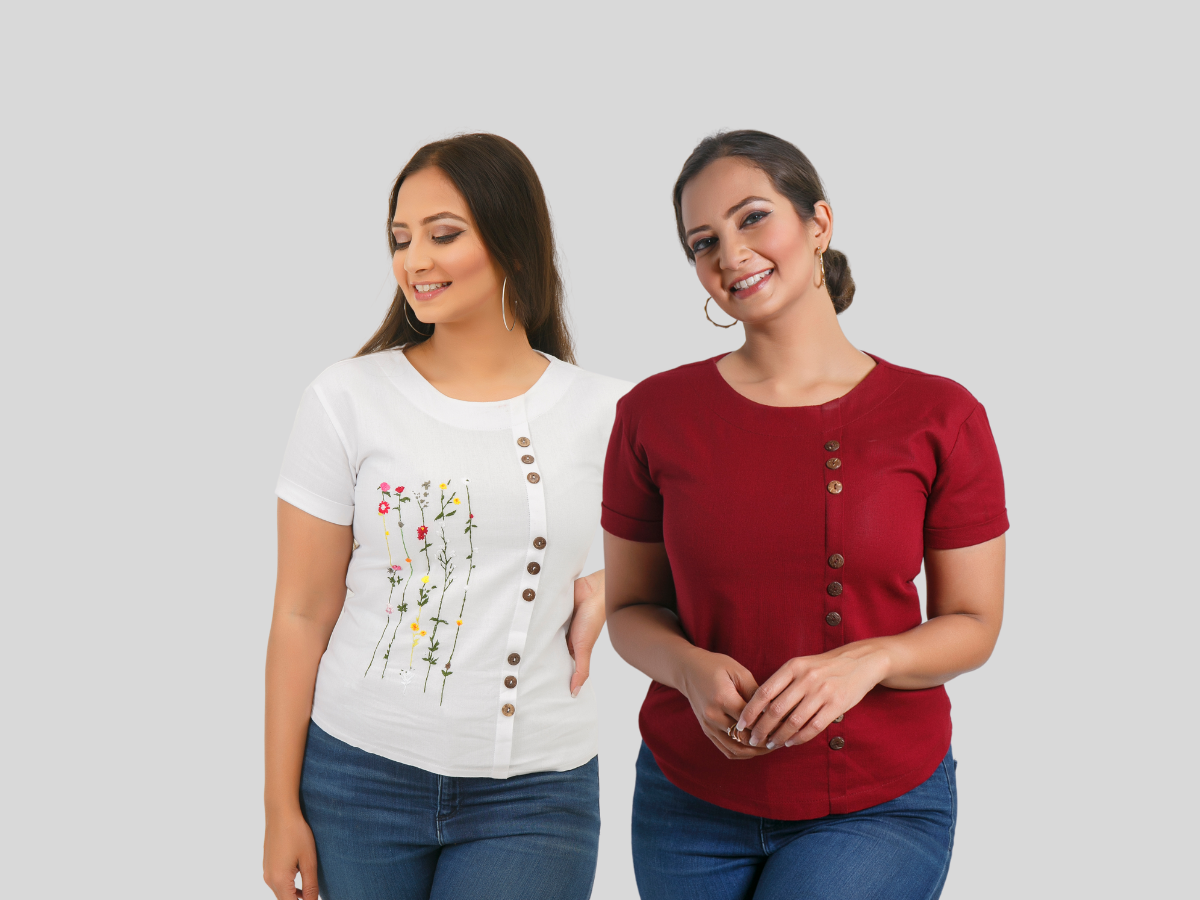As the fashion industry evolves, so does the demand for sustainable and eco-friendly clothing options. Women's blouses, a staple in many wardrobes, are no exception. Choosing sustainable fabrics for your blouses not only benefits the environment but also offers superior comfort and quality. This guide delves into the eco-friendly fabrics you should look for in women's blouses and why they matter.
Why Sustainable Fabrics Matter
The fashion industry is one of the largest polluters in the world, with a significant impact on water resources, carbon emissions, and waste production. By choosing sustainable fabrics, you contribute to reducing these negative effects. Sustainable fabrics are made from renewable resources, often involve less harmful production processes, and are designed to be biodegradable or recyclable. They also tend to be more durable, providing long-lasting wear and reducing the need for frequent replacements.
Top Sustainable Fabrics for Women's Blouses
1. Organic Cotton
Organic cotton is grown without synthetic pesticides, fertilizers, or genetically modified organisms (GMOs). This eco-friendly fabric is breathable, soft, and gentle on the skin, making it a popular choice for blouses.
Benefits:
- Environmental Impact: Organic cotton farming uses less water and energy compared to conventional cotton farming. It also promotes healthier soil and reduces pollution from chemical runoff.
- Comfort: Organic cotton is free from harsh chemicals, making it hypoallergenic and ideal for sensitive skin.
- Durability: High-quality organic cotton can be more durable than its conventional counterpart, providing long-lasting wear.
2. Tencel (Lyocell)
Tencel, also known as lyocell, is a sustainable fabric made from wood pulp, usually sourced from eucalyptus trees. The production process involves a closed-loop system that recycles water and solvents, minimizing waste.
Benefits:
- Environmental Impact: Tencel is produced using sustainably managed forests and has a low ecological footprint. The closed-loop process ensures minimal environmental damage.
- Comfort: Tencel is known for its silky smooth texture and excellent breathability, making it comfortable to wear in various climates.
- Durability: This fabric is strong and resistant to wrinkles, maintaining its shape and quality over time.
3. Hemp
Hemp is one of the oldest and most sustainable fibers used in textiles. It requires minimal water, pesticides, and synthetic fertilizers, making it an environmentally friendly choice for blouses.
Benefits:
- Environmental Impact: Hemp grows quickly and densely, outcompeting weeds and reducing the need for herbicides. It also restores soil health and reduces agricultural waste.
- Comfort: Hemp fabric is breathable and becomes softer with each wash, providing a comfortable and durable option for blouses.
- Durability: Hemp is one of the strongest natural fibers, ensuring your blouse will withstand regular wear and washing.
4. Linen
Linen is made from the flax plant and is renowned for its sustainability and durability. It requires fewer pesticides and fertilizers than many other crops and has a relatively low environmental impact.
Benefits:
- Environmental Impact: Flax farming is environmentally friendly, with the entire plant being used in production, resulting in minimal waste.
- Comfort: Linen is highly breathable and has excellent moisture-wicking properties, keeping you cool and dry in warm weather.
- Durability: Linen is strong and long-lasting, improving with age and becoming softer and more comfortable over time.
5. Recycled Fabrics
Recycled fabrics, such as recycled polyester or nylon, are made from post-consumer waste like plastic bottles or discarded textiles. These fabrics help reduce landfill waste and lower the demand for virgin materials.
Benefits:
- Environmental Impact: Recycled fabrics reduce the need for new raw materials, conserving energy and reducing greenhouse gas emissions associated with production.
- Comfort: Advances in recycling technology have made it possible to produce soft, comfortable fabrics from recycled materials, suitable for fashionable and functional blouses.
- Durability: Recycled fabrics maintain the durability of their original forms, ensuring that recycled polyester, for instance, retains its strength and resilience.
Choosing the Right Sustainable Blouse
When shopping for sustainable women's blouses, consider the following tips:
- Check Labels and Certifications: Look for certifications such as GOTS (Global Organic Textile Standard) for organic cotton, Tencel certification, or OEKO-TEX Standard 100, which ensures the fabric is free from harmful chemicals.
- Research Brands: Support brands that are transparent about their sourcing and manufacturing processes. Many sustainable brands share information about their supply chains and environmental practices.
- Prioritize Quality: Investing in high-quality blouses made from sustainable fabrics may cost more initially but will save you money in the long run due to their durability and timeless style.
- Consider Second-Hand: Shopping second-hand or vintage can be a sustainable option, giving pre-loved blouses a new life and reducing demand for new production.
Conclusion
Sustainable fabrics for women's blouses not only offer environmental benefits but also provide superior comfort and durability. By choosing blouses made from organic cotton, Tencel, hemp, linen, and recycled materials, you can make a positive impact on the planet while enjoying stylish, high-quality clothing. As consumers, our choices matter, and opting for sustainable fabrics is a step toward a more eco-friendly and conscious wardrobe.




